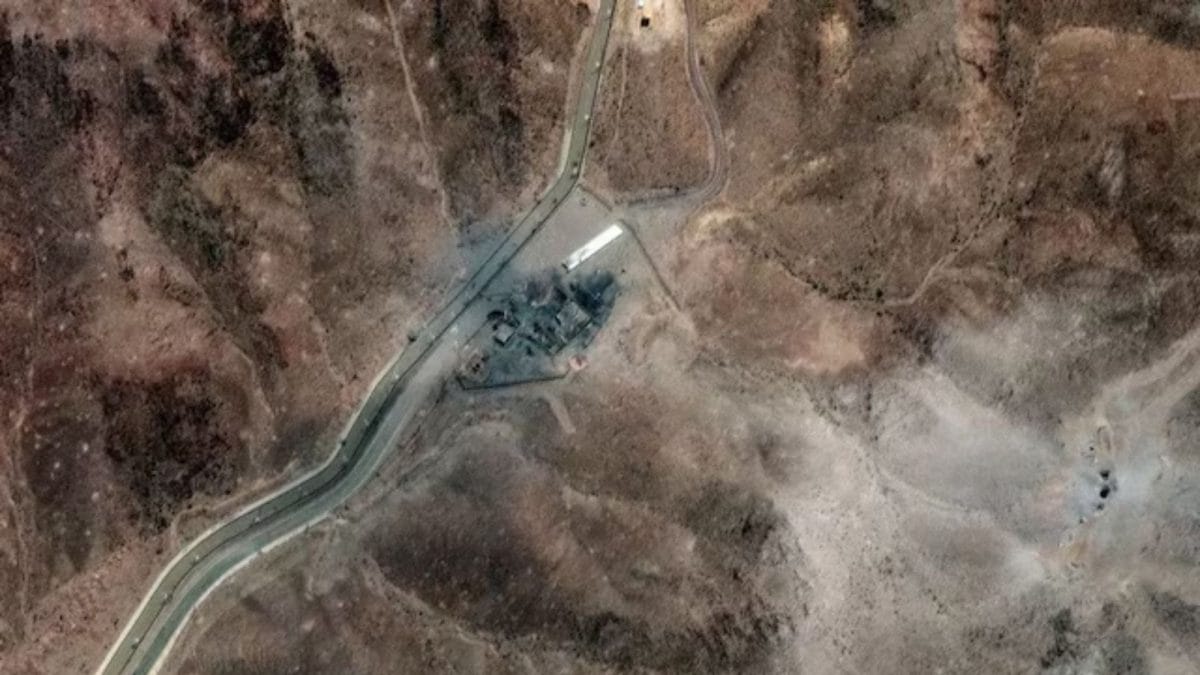Last Updated:
Israel has justified its targeted strikes on Iranian military and nuclear facilities by arguing it cannot allow Tehran to develop nuclear weapons.

Iran’s newly elected president signed a law on July 2 suspending all cooperation with the IAEA
Iran increased its stockpile of uranium enriched to near weapons-grade levels just before Israel’s airstrike campaign on June 13, according to a confidential report released Wednesday by the United Nations’ nuclear watchdog, the International Atomic Energy Agency (IAEA).
The report, circulated among IAEA member states and obtained by the Associated Press, covers Iran’s nuclear activities between May 17 and June 12, 2025. The Vienna-based agency concluded that as of June 13, Iran possessed 440.9 kilograms (972 pounds) of uranium enriched up to 60% purity, an increase of 32.3 kilograms (71.2 pounds) since its previous report in May.
Recommended Stories
The IAEA emphasised that this data is “based on the information provided by Iran, agency verification activities between the above provided dates, and estimates based on the past operation of the relevant facilities.” Enrichment to 60% brings Iran alarmingly close to weapons-grade uranium, which requires 90% purity. Experts note that approximately 42 kilograms of 60% enriched uranium, if further enriched, could be enough to produce one atomic bomb.
Despite these findings, the report states there has been no agreement reached with Iran to resume inspections at nuclear sites that were damaged during Israeli and US airstrikes in June. As a result, the extent to which these strikes disrupted Iran’s nuclear infrastructure remains uncertain.
Israel has justified its targeted strikes on Iranian military and nuclear facilities by arguing it cannot allow Tehran to develop nuclear weapons. Israeli officials have expressed growing alarm over Iran’s nuclear progress, although Iran insists its nuclear program is entirely peaceful and for civilian purposes.
On June 22, the US joined the offensive, deploying bunker-buster bombs against suspected Iranian nuclear sites. In response, Iran’s newly elected president, Masoud Pezeshkian, signed a law on July 2, passed by the Iranian Parliament, suspending all cooperation with the IAEA.
Since then, the only site the IAEA has been able to access is the Bushehr Nuclear Power Plant, which is operated with Russian assistance. Inspectors observed a fuel replacement procedure there on August 27 and 28.
The IAEA expressed alarm in its report, stating inspectors have not been able to verify Iran’s near bomb-grade uranium stockpile for over two and a half months, calling it “a matter of serious concern.” Meanwhile, Iran remains legally obligated to cooperate with the IAEA under the Treaty on the Non-Proliferation of Nuclear Weapons (NPT).
- Location :
Vienna, Austria
Loading comments…
Read More



)
